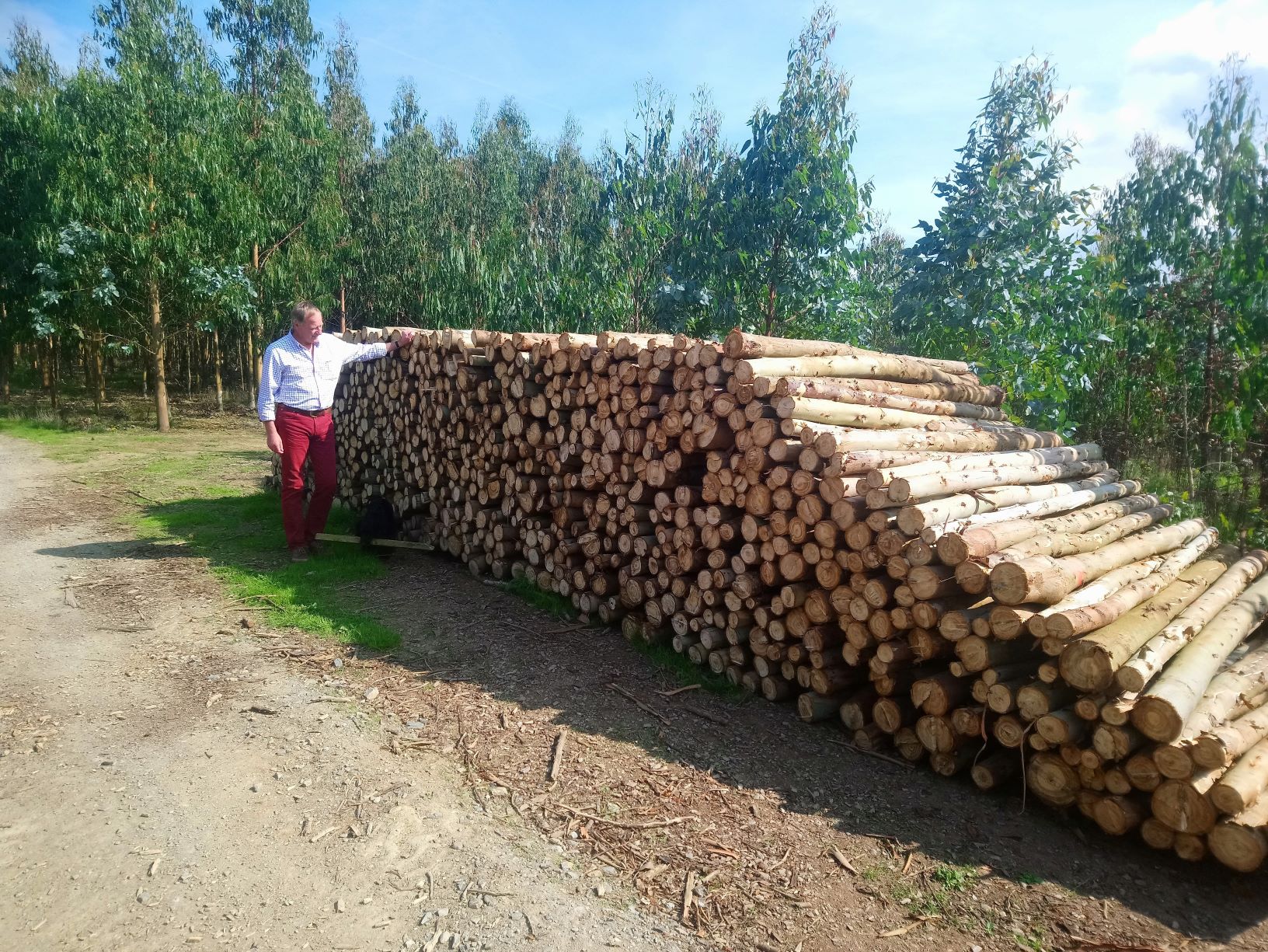Fast-growing trees for firewood include poplar, willow, and eucalyptus. These trees grow rapidly, making them an excellent choice for renewable firewood sources.
When selecting fast-growing trees for firewood, there are certain criteria to consider, such as the tree’s moisture content, its BTU output, and the ease of splitting and seasoning it. Poplar and willow trees are popular choices due to their high btu output and low moisture content, while eucalyptus is known for its excellent burning qualities and fast growth rate.
Another advantage of these trees is their ability to withstand adverse weather conditions, pests, and diseases. They can also be grown and harvested sustainably and can be an excellent option for those looking for an environmentally friendly source of firewood. Fast-growing trees such as poplar, willow, and eucalyptus can provide an excellent source of renewable, sustainable, and eco-friendly firewood.

Credit: www.crops4energy.co.uk
Quick Navigation
Benefits Of Fast Growing Trees For Firewood
Fast-growing trees are ideal for firewood with many benefits. These trees have high-yielding potential, meaning they can produce a lot of wood quickly. Their faster growth rate allows for more frequent harvesting, making them a more sustainable resource.
They also reduce dependence on natural forests and promote improved resource management. Plus, they are cost-effective, which makes them an attractive option for those looking to save money. Overall, choosing fast-growing trees for firewood is a smart and responsible decision.
Recommended Fast-Growing Trees For Firewood
If you’re looking for fast-growing trees for firewood, you may want to consider the willow tree, poplar tree, eucalyptus tree, pine tree, and maple tree. These trees are popular choices because they grow quickly and are easy to cut down and split.
Willow trees are especially ideal due to their ability to regenerate quickly and provide a steady supply of firewood. Poplar trees are known for their straight trunks and easy splitting while eucalyptus trees are popular for their high heat output and pleasant aroma.
Pine trees are another popular choice due to their high resin content which makes for easy lighting and long-lasting fires. Lastly, maple trees are known for their dense wood which burns hot and slow, perfect for those long winter nights.
Factors To Consider When Selecting Fast-Growing Trees For Firewood
Selecting fast-growing trees for firewood should take into account climate, soil conditions, aesthetics, space requirement, disease and pest resistance, ease of propagation, and maintenance. Trees like poplar grow quickly and have a straight, uniform shape that makes excellent firewood.
However, poplar might not be the best choice in a hot climate or soil that is too moist, as it has a high water requirement. In contrast, willow is a fast-growing tree that can grow in wet soil conditions.
Willow trees also require less space and are resistant to many pests and diseases, making them a popular choice for firewood. Additionally, some trees that grow quickly may require more maintenance. It is important to select a tree that not only grows fast but also fits your environment and firewood needs.
Best Practices For Growing Fast-Growing Trees For Firewood
Growing your own firewood is a cost-effective and eco-friendly approach. To ensure success in growing trees quickly for firewood, proper planting, pruning, soil preparation, and fertilizing are necessary. It is essential to select fast-growing species for your area and climate but also considers their durability and quality.
Proper weeding and pest control methods will protect your trees from infestation and disease. Harvesting and processing tips will help yield the best-firewood quality. Regular trimming and pruning are vital to maintaining a healthy tree structure and preventing damage due to storms and high winds.
With proper care, dedication, and patience, you can grow your fast-growing trees for a more sustainable and renewable fuel source.
Frequently Asked Questions For Fast-Growing Trees For Firewood:
What Are Fast-Growing Trees For Firewood?
Fast-growing trees for firewood are trees that grow quickly and can be harvested for firewood within a few years. Examples include cottonwood, willow, and poplar.
What Is The Best Tree For Firewood?
The best tree for firewood is one that grows quickly and burns well. Examples of trees that are good for firewood include oak, maple, ash, and hickory.
How Long Does It Take For A Tree To Grow For Firewood?
It typically takes 7-20 years for most trees planted for firewood to grow to a size suitable for harvesting. However, fast-growing trees like willow and poplar can be harvested in as little as 3-5 years.
How Can I Keep My Firewood From Rotting?
To keep your firewood from rotting, make sure it is stored in a dry location and off the ground. A wood shed or stacked under a tarp can help keep the wood dry and prevent rotting.
Which Type Of Wood Burns The Longest?
Hardwoods like oak, maple, and hickory burn longer and hotter than softwoods like pine and spruce. These woods have a higher density and lower moisture content, making them more efficient and longer-lasting for burning as firewood.
Conclusion
Overall, fast-growing trees for firewood are a great option for those looking to harvest firewood quickly and efficiently. It is important to choose the right species for your climate and soil type and to regularly maintain and thin your trees to ensure optimal growth.
By planting these fast-growing trees, you can ensure a steady supply of firewood for your home heating needs and reduce your reliance on fossil fuels. Additionally, many of these trees also have environmental benefits such as providing shade and improving air quality.
Whether you opt for the classic poplar or the lesser-known hybrid willow, fast-growing trees for firewood are an excellent choice for any homeowner. So go ahead and plant a few today – your pocketbook and the environment will thank you!